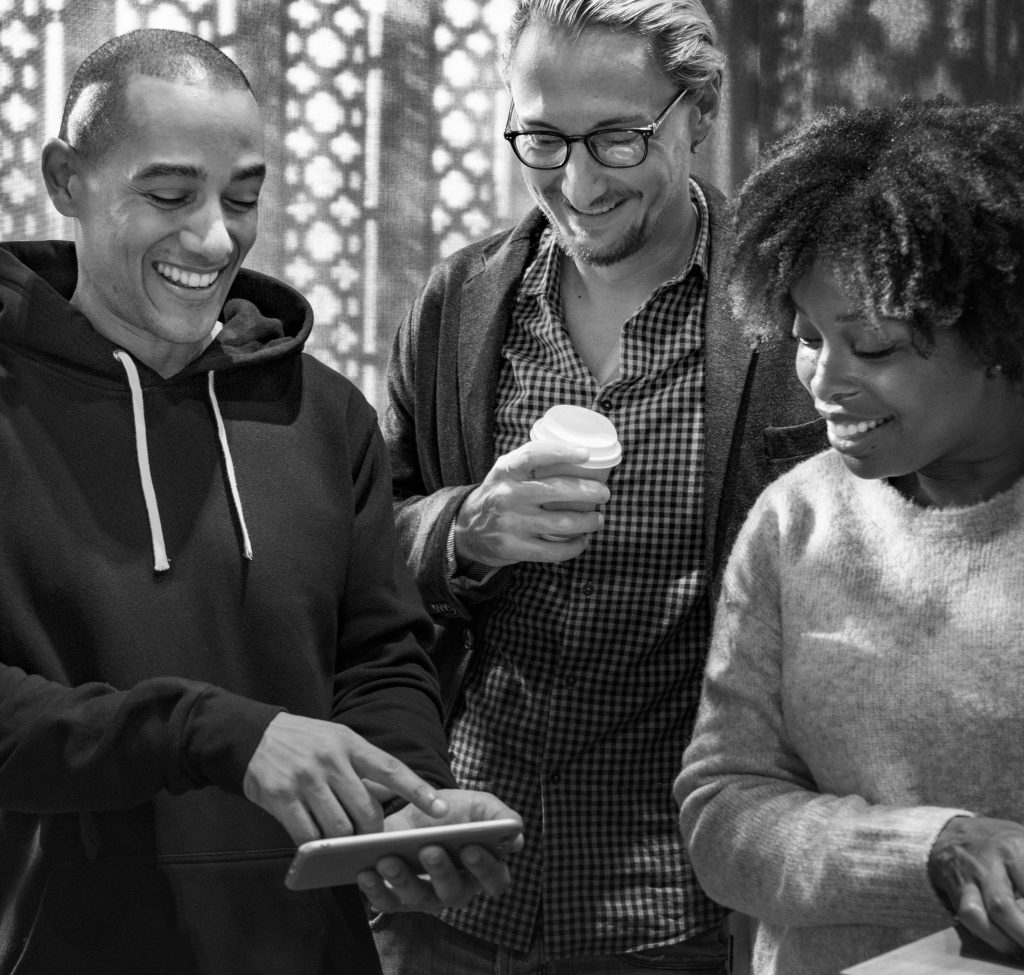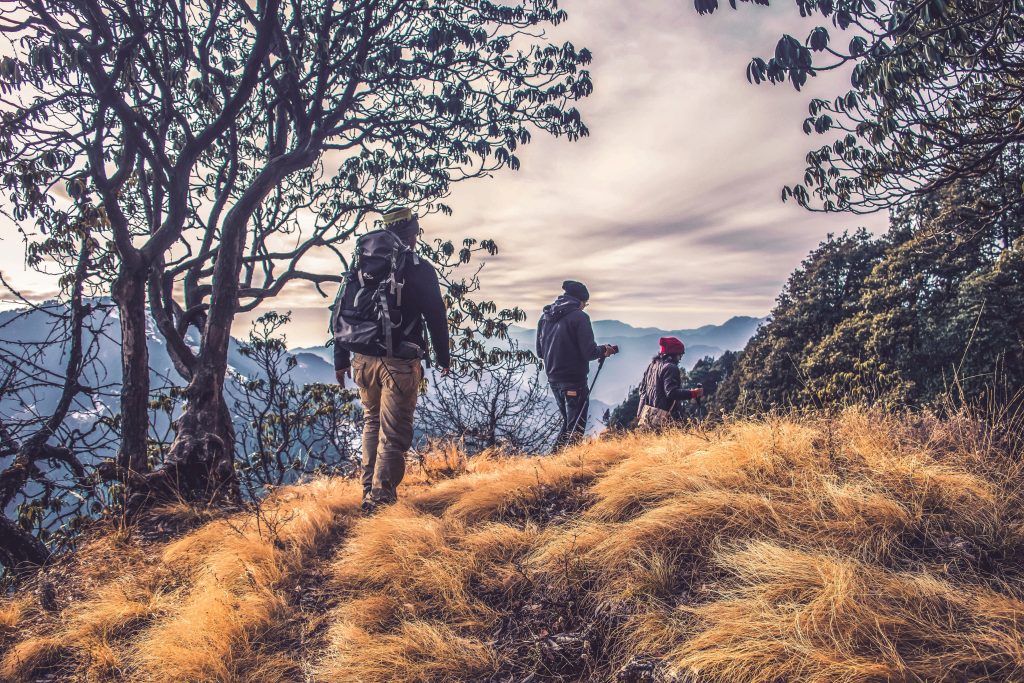Finding Belonging in the Digital Age
By Donna Torney, MA, LMHC, RYT
If you had a magic wand, and could build your ideal community, what would it look like? Clarifying who you consider your “people” will help you discover a deeper sense of belonging.
Picture this scene: It’s a warm, sunny day in a small city or town. You are strolling by an outdoor café. The tables are full of people sipping coffee and nibbling pastries. Some people are talking to one another, but most are looking at their hand-held devices. Are they feeling connected, or lonely? It’s really hard to tell isn’t it? And what about you? Are you, as you walk by the café, feeling a sense of belonging?
Finding social connection today is a different process than it was even a decade ago. But the fact is, like our ancestors, we are social animals and in most cases experience a stronger sense of well-being when we travel in a group versus flying solo. So what does it mean to feel like you “belong” in the digital age?

Technology is wonderful! I am after all writing this article on my laptop, on a program that helps me catch typos and make my points as clearly as possible. However, the pervasiveness of technology can trick us into thinking that we are physically evolving just as rapidly as our digital gadgets. We are much more than walking, talking, processing systems. Our nervous system is the same as our grandparents and our great-great grandparents. This slow-to-evolve system that we all share needs to be cared for and tended to with connection to community and the natural world.
You may be thinking, “Well, I’m an introvert,” or “I get enough time with my friends online.” But just imagine that you have zero connection to other humans and zero connection to nature. A bit unsettling, isn’t it? Remembering that you are a social animal and part of the natural ecosystem will help you build motivation to stay connected. But we need more than this reminder. To build our ideal community we also need to feel safe in this ecosystem.
If you are feeling stressed by daily life or even struggling with anxiety or low energy, it’s going to be difficult for you to connect with your people. When I talk to clients about building community, I first talk about emotion regulation skills. If you are anxious, do you know how to calm yourself down? If you are tired or overwhelmed, do you have the skills to shift your energy just enough to accept an invitation to go for a walk with a friend? We need to find physical/emotional balance. After we do that, finding belonging becomes much, much easier.
Once you are feeling safe, you can start to build compassion for yourself and for others. Here’s one way to flex your compassion muscle: Remember that everyone around you wants and needs a community just as much as you. My husband and I recently planned a holiday party. When it came time to get ready, we were faced with an all-night rainstorm. My internal dialogue started sounding something like this: “Nobody is going to want to make the effort to come out in the rain…. What were we thinking?” As it turns out, people did show up – a small but lovely mixture of old and new friends. I may have cancelled the party and missed out on a very pleasant event if I hadn’t continued to remind myself that I was building community by creating an opportunity to connect. Keeping this in mind is a form of compassion and self-compassion. We all want and need to connect. It’s okay if we don’t do it perfectly – or if we get stuck in the rain on the way to the party.
“Who the heck am I anyway? It would sure help to know the answer to that question before I try to find my ideal community.” This is a universal and timeless question. Problems arise when we think we have to be some fully formed version of ourselves before we pursue friendships. After all, everybody seems to have it all together on Facebook, right? Rest assured, we are all works-in-progress. We are allowed to grow, mature, and change through the decades of our lives. If you honor this truth about your human existence, you are giving others the opportunity to do the same. Score another point for self-acceptance and compassion.

There are some experiences that just can’t be digitized, but a sense of belonging doesn’t necessarily have to come from other people. You can also foster a greater feeling of belonging by paying attention to your physical surroundings and cultivating a sense of place. This develops through directly experiencing and learning about a particular area. You can cultivate a sense of place by having direct exposure to the history, geographical features, natural elements, and culture of a place. What is your favorite natural element of your home base? Where are your favorite places to sit? Developing a sense of place will help you feel connected to a community and less alone even if you are by yourself. You can take this a step further by assessing the needs of you community and becoming an active member of a local organization.
Remember – don’t give up. Continue to honor your nervous system, your work-in-progress identity, and your community. Even if it feels unnatural or if you tend to lean toward the introverted side, try to connect one of your people or your physical surroundings every day. If you hate small talk, remember the saying, “There is no small talk.” You never know when a “meaningless” interaction might be profound for the person you are talking to, or for yourself.
To read more about mindfulness check out Mindfulness for Emerging Adults by Donna Torney, as well as Mindfulness Skills Workbook: Remedies for Worry, Anxiety & Stress or the Teen Mindfulness Skills Workbook, also available from Whole Person Associates, WholePerson.com.
